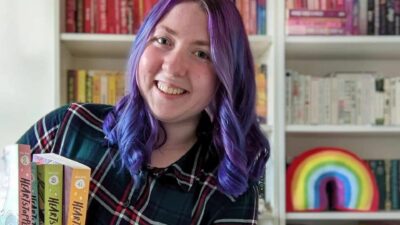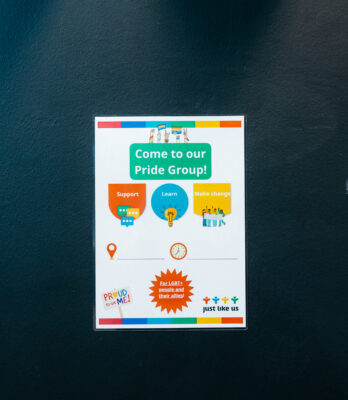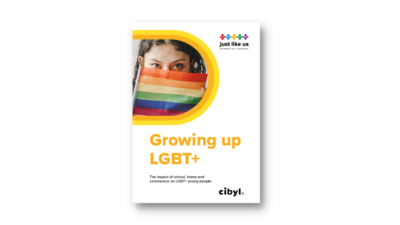
Lady Phyll talks UK Black Pride and growing up LGBT+ in new podcast
Blog
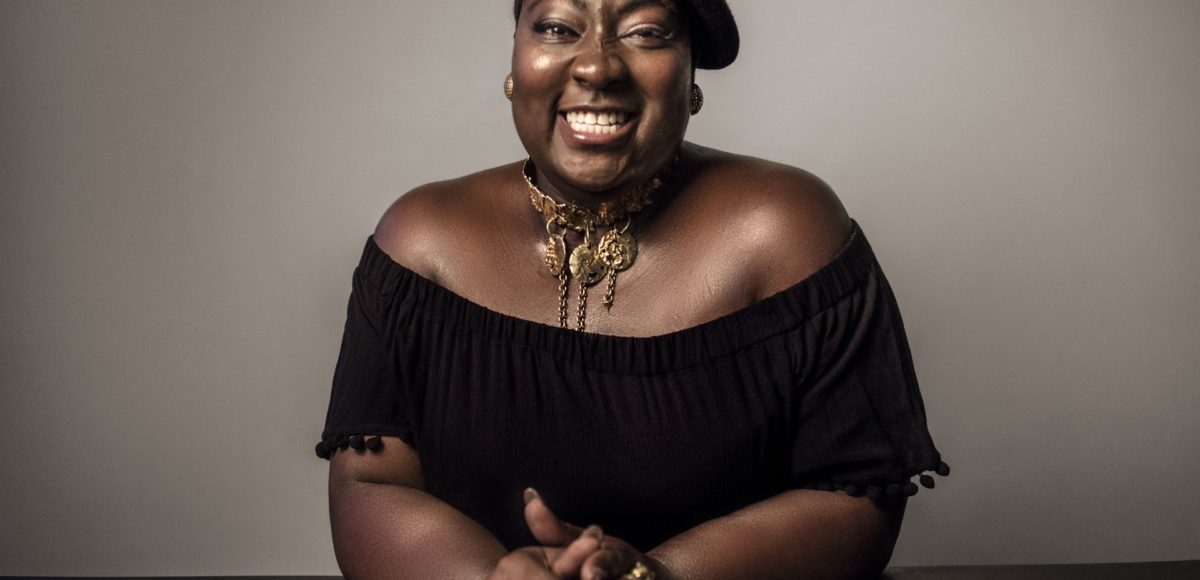
Lady Phyll (she/her), Co-Founder of UK Black Pride and Executive Director of Kaleidoscope Trust, speaks about her family life, why inclusive education matters and how representation shapes us on Just Like Us’ new podcast series.
On LGBT+ role models
“When I came out well over 20 years ago, I was thinking I’m the only Black lesbian in the village – we all think we’re the only ones – but then you do your homework and your research, and you realise that there are people that came before you. This is why I always talk about the shoulders of giants that I stand on because they’re the ones that actually paved the way – people like Veronica McKenzie, Femi Otitoju who was the first Black lesbian woman to head up and work on the London Lesbian and Gay Switchboard. You had Monica Beadle, who is Rikki Beadle-Blair’s mother. There were so many but when the media presents what representation looks like and it doesn’t look like us, you don’t see these people who have been doing the groundwork for many, many years. You only see what is an ideal standard of beauty or acceptance in media.
“I had role models and people who helped shape my thinking, what my theory of change might look like in particular instances, and how UK Black Pride was born was because of those that came before me.
“Positive representation really does matter. There’s a quote from Dr Ronx, they say ‘you cannot be what you cannot see’. When you don’t see people that reflect some of your own struggles, your histories, your identities, then you’re going to feel somewhat isolated or alone or that you’re having to do this journey of life on your own.
“So it’s important that, from the courthouses to the big Fortune 500s to the Trade Unions to the schools, we see each other in all our glory. Whether we are LGBTQIA+, whether we are Black or brown, whether we are working class, whether we are from homes which may not have been the best, we need to be able to connect and that connection is really important for what shapes your life and your future.
“That’s why I love the work that you do – it’s so important that the next generation feel that they are able to have these conversations and have some of these very nuanced conversations, and help educate and teach us – it’s not just about us going in and talking about our lived experiences. I think the work that you are doing is great, and long may it continue.”
Lady Phyll on the need for inclusive, intersectional education
“There were some things about school that I really liked and then there were some things I really – and I don’t use the word lightly – hate.
“I love history and I was taught about Christopher Colombus, the Battle of Hastings 1066, I can recite the names of Henry VIII’s wives but I was never taught about colonialism and enslavement and slavery and capitalism and how Britain benefitted off the backs of Black people through enslavement. I would always question and I would be sent out of the classroom for disrupting.
“I’ve been sent out of the boardroom for being disruptive. I am what some people see as the angry Black woman – those tropes and stereotypes that exist – because I question, so things have changed since school but some things have stayed the same. I’m glad my conviction and passion have stayed the same to continue to challenge and question when something doesn’t feel right for our communities or people.”
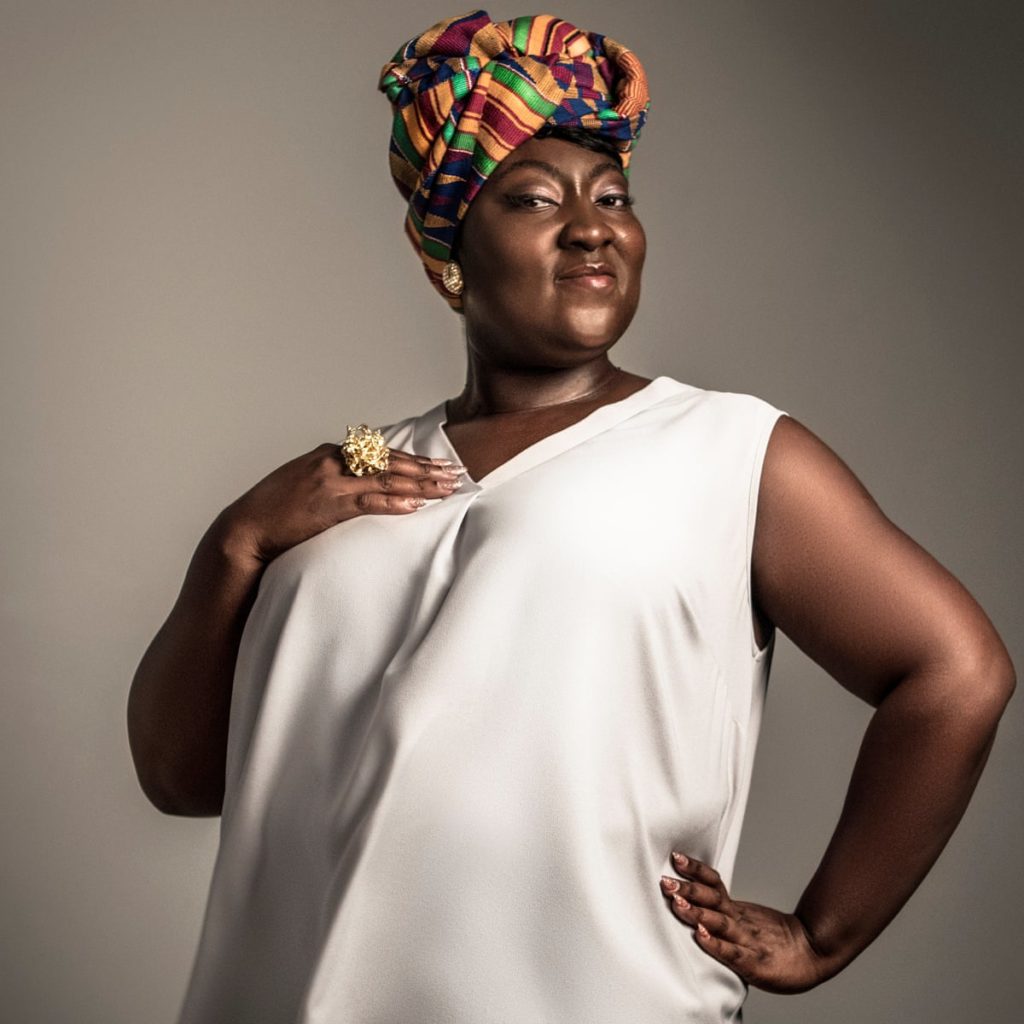
Lady Phyll on UK Black Pride and chosen family
“In terms of chosen family, UK Black Pride has over 10,000 people that attend – that’s chosen family. That’s a place where we can find our tribe, find a place to belong, and to celebrate one another and hold one another – regardless of whether we’re blood or not.
“To make sure that we’re putting our trans siblings voices at the forefront because of everything that they face, trying to ensure that we’re not just saying Black Lives Matter as a tokenistic, performative action but really meaning what we say and taking action behind it, to make sure that we address issues of misogyny and misogynoir that impact the way we are, and that’s what chosen family do when we come together.
“Just know that there are so many people that can hold us. Our families are unique and beautiful but at the same time, when we’re unveiling the masks and the layers that we’ve kept on for so long – in order to show our true selves – and and it’s not accepted by everyone, the shame or dishonour placed on us by others is a ‘them’ issue. It’s not an ‘us’ issue.”
On what she’d tell her younger self
“I would go back to my younger self at the age of nine or ten and I would say: you are a beautiful Black girl that will grow up to do so much that will actually change the world. Don’t let them tell you because you are big that you’re not worthy, that because you’re dark skinned that your skin is ugly. Don’t let them tell you that your hair is nappy. Don’t let them tell you anything that will affect you in a way that you cannot move.
“Don’t be stifled by the nasty, venomous hateful words that will be thrown at you because it’s all jealousy and you’re going to be so amazing. Every room you step into, you’re going to be noticed. Every word you utter, people are going to listen to you. And you’re also going to be in a Vogue magazine! And you’re also going to be able to tell those people that didn’t recognise your beautiful, queer Black, dark-skinned African self, look at me now.”
Volunteer with Just Like Us
Just Like Us, the LGBT+ young people’s charity, is looking for LGBT+ volunteers aged 18-25 to join our Ambassador Programme.
